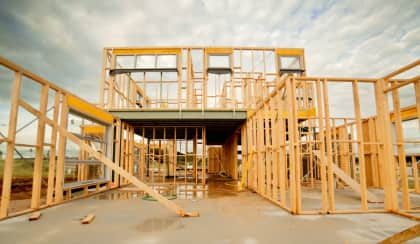Building approval declines latest blow delivered by RBA rate hikes
According to new research released by the Australian Bureau of Statistics (ABS), building approvals fell nearly 10 per cent in November last year in what one expert described as another string in the housing downturn’s bow.

Thomas Devitt, economist at the Housing Industry Association (HIA), said a 9 per cent decline in building approvals throughout the penultimate month of 2022 — which included a 2.4 per cent decline in detached approvals and a 19.9 per cent drop in multi-units — “suggests that builders have worked through much of their large pipeline of work that existed in May 2022, when the RBA started increasing the cash rate”.
The ABS’ figures, released in early January, place detached approvals in the three months to November down 12.1 per cent on the equivalent quarter in 2021, by the same token multi-units are down 11.4 per cent.
In seasonally adjusted terms, total building approvals by state were mostly down in the November quarter, led by declines of 27.4 per cent in Western Australia, 16.8 per cent in Queensland, 12 per cent in NSW, and 6.6 per cent in Victoria.
Mr Devitt explained that “within two months of the RBA’s first interest rate hike in May 2022, leading indicators of building activity, including new home sales, started to decline. Investors, first home buyers and owner-occupiers started retreating from the housing market.”
He added the current figures indicate there will be a slowdown in the number of homes under construction in 2023, especially during the second half of the year when he believes the full impacts of the RBA’s 2022 cash rate increases — which began in May — will be observed.
“The depth of this downturn will be determined by the RBA’s cash rate decisions,” he added.
With the RBA having already undertaken the steepest hiking cycle in history, resulting in the cash rate booming from 0.1 per cent in April to 3.10 per cent at the end of 2022 courtesy of four consecutive 50-basis point increases between June and September, Mr Devitt said the RBA “needs to hold fire on further hikes to give their actions to date time to play out”.
Given more housing market indicators, including a 23.4 per cent slump in new sales during November last year, further build on the impact of cash rate increases to date, he concluded that “the RBA will be under increasing pressure to reverse course in the second half of the year”.
Additionally, ABS’ data also revealed the value of buildings approved fell 1.5 per cent during November, led by a 9.2 per cent value decrease to alterations and additions to residential buildings.
